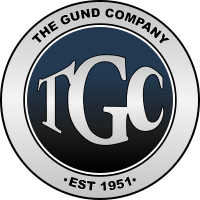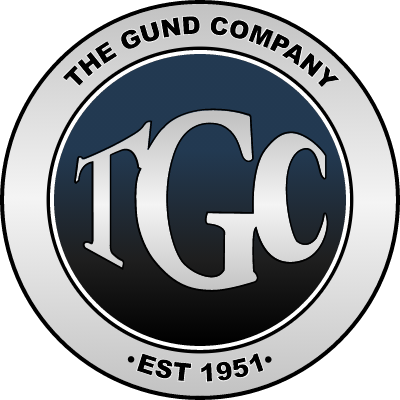Material Solutions Manufacturer
Thermoset, Thermoplastic, Flexible & Elastomeric Materials
THE GUND COMPANY IS A VERTICALLY INTEGRATED MANUFACTURER AND FABRICATOR OF ENGINEERED MATERIAL SOLUTIONS FOR COMPOSITE MATERIALS.
In an ever-evolving world where innovation drives progress, the importance of materials cannot be overstated. At the heart of this transformation is the manufacturing industry, and at the core of manufacturing are the materials themselves. The Gund Company specializes in crafting cutting-edge solutions for diverse industrial needs, encompassing a comprehensive range of materials. From versatile thermoplastics that offer flexibility and ease of processing, to resilient elastomerics designed per our customers’ specifications, for optimal elasticity and durability, and finally, advanced composite materials combining the best of both worlds.
At The Gund Company, we understand that one size does not fit all. That’s why we take pride in providing tailored, engineered material solutions for Thermoplastic & Elastomeric materials for machining. Our team of experts collaborates closely with clients to understand their specific requirements, ensuring that each material solution meets exacting standards.
Whether it’s rigid, glass epoxy materials for robust applications in the aerospace and defense sectors, or high-temperature, silicone sponge for extreme environments found in industries like automotive and electronics, our commitment to excellence is unwavering. We’re not just supplying materials; we’re forging partnerships that drive innovation and success.
We pride ourselves on providing tailored, engineered material solutions that empower industries to push the boundaries of what’s possible. Whether it’s rigid, glass epoxy materials for robust applications or high-temperature, silicone sponge for extreme environments, The Gund Company’s commitment to excellence ensures that your material needs are met with precision and innovation. Welcome to the world of Material Solutions, where the future is built one material at a time.
Welcome to the world of Material Solutions by The Gund Company, where the future is built one material at a time. With a legacy of excellence and a vision for tomorrow, we are your trusted partner on the journey to discover the boundless potential of engineered materials.
THERMOSET RIGID COMPOSITE MATERIALS
THERMOPLASTIC IS A TYPE OF PLASTIC THAT IS MADE UP OF POLYMER RESINS, WHICH BECOMES SOFT AS THE MATERIAL IS HEATED AND HARD AS IT IS COOLED.
Thermoset rigid laminates are composite materials. By definition, composite materials consist of two or more materials. In most thermoset rigid laminates, the primary materials include a substrate or base material such as paper, cotton cloth, or glass cloth, along with a resin or adhesive such as epoxy, melamine, or silicone. For thermoset laminate production, the base material is coated with an adhesive so that layers of material can be pressed into sheet form under heat and pressure.
Thermosetting materials are strong materials consisting of resin and a substrate. They do not melt at high temperatures and cannot be reformed. They are rigid by nature, so they are easily machinable. Due to the use of these materials in electrical equipment, the National Electric Manufacturers Association (NEMA) has established industry standards for the minimum test values by property for each material. Thermoset materials are commonly referenced using the NEMA grade designation.
The Gund Company focuses on two main types of Thermoset Rigid Composite Materials:
- High-Pressure Laminates
- Low-Pressure Laminates
THERMOPLASTIC MATERIALS
THERMOPLASTIC IS A TYPE OF PLASTIC THAT IS MADE UP OF POLYMER RESINS, WHICH BECOMES SOFT AS THE MATERIAL IS HEATED AND HARD AS IT IS COOLED.
Thermoplastic materials can be homogenous and heterogeneous in their makeup. Unique properties can be achieved by blending thermoplastics, co-extruding thermoplastics or even including special property-enhancing additives.
Thermoplastic can be manufactured and fabricated using several standard methods. Most thermoplastic sheet and film are produced using an extrusion process. However, cast methods can also produce some sheet thermoplastic materials, as well. Nearly any thermoplastic sheet material can be formed using thermoforming, vacuum forming or cold forming methods. Not only that, but thermoplastics with or without reinforcement can also be injection molded into complicated shapes, specifically with features that are not achievable through standard machining. All thermoplastic is often processed similarly. Although, performance characteristics, workability, and cost can vary greatly.
Thermoplastic materials are suitable for numerous applications and are most commonly utilized in the following industries:
- Aerospace
- Defense
- Medical
- Satellite Communications
- Food Service
- Electronics
FLEXIBLE MATERIALS
FLEXIBLE MATERIALS CAN BE CHARACTERIZED BY THE ABILITY TO BEND OR COMPRESS EASILY WITHOUT CRACKING UNDER NORMAL CONDITIONS.
The Gund Company manufactures, converts, and distributes papers, films, and flexible elastomeric laminate materials.
- Aerospace
- Defense
- Medical
- Satellite Communications
- Food Service
- Electronics
ELASTOMERIC MATERIALS
ELASTOMERIC MATERIAL IS ANY MATERIAL EXHIBITING ELASTIC OR RUBBER-LIKE PROPERTIES.
Elastomeric materials are measured in material type, compound, and durometer (the material’s hardness).
Since there is such a wide variety of elastomeric materials, the application is critical to understanding the job’s best material compound.
- Foam / Sponge
- Rubber
- O-Rings
- EMI Shielding / Thermal Management
- Cork / Rubber
- Felt Wool
- Felt / Polyester





